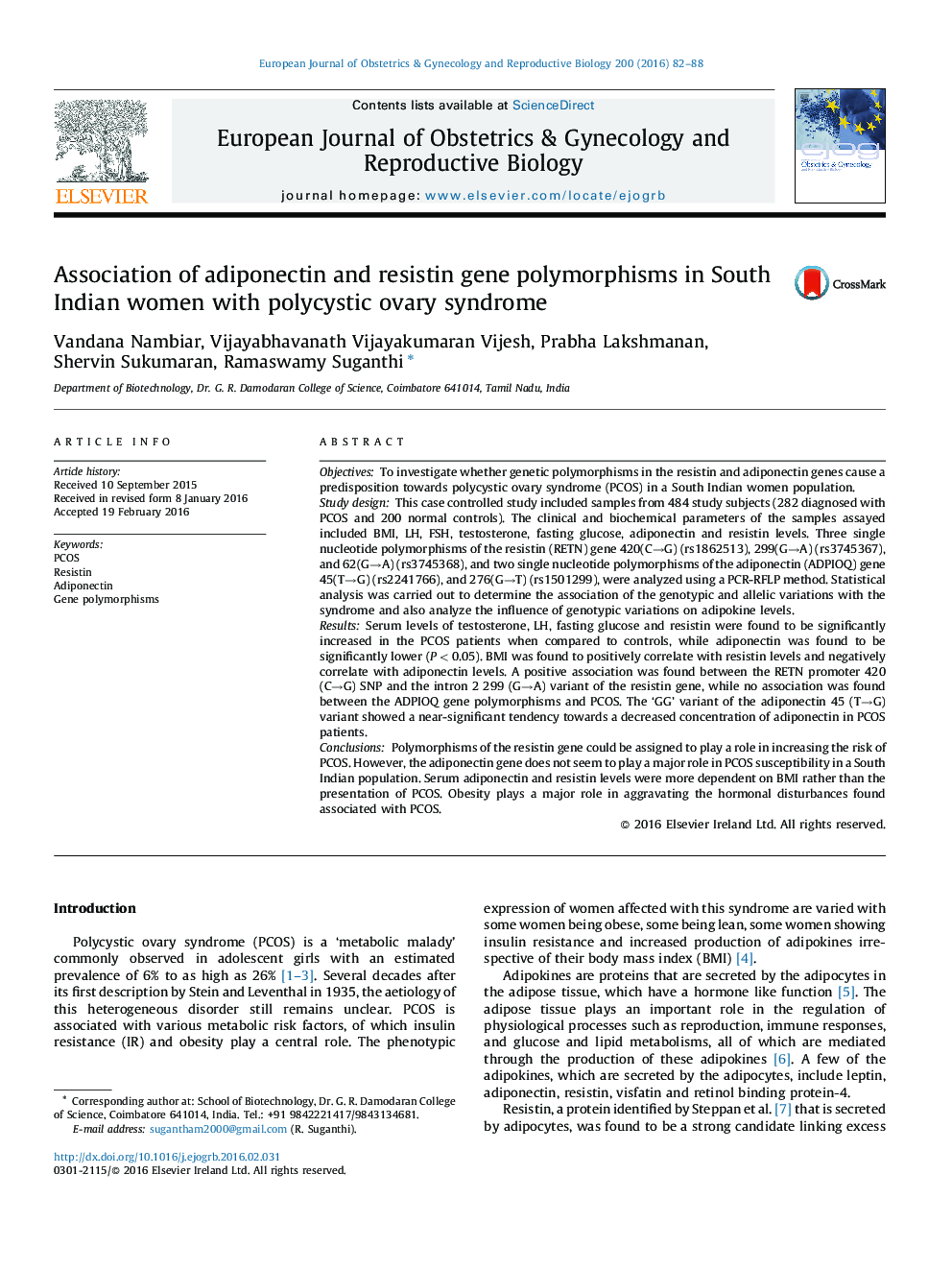| Article ID | Journal | Published Year | Pages | File Type |
|---|---|---|---|---|
| 3919255 | European Journal of Obstetrics & Gynecology and Reproductive Biology | 2016 | 7 Pages |
ObjectivesTo investigate whether genetic polymorphisms in the resistin and adiponectin genes cause a predisposition towards polycystic ovary syndrome (PCOS) in a South Indian women population.Study designThis case controlled study included samples from 484 study subjects (282 diagnosed with PCOS and 200 normal controls). The clinical and biochemical parameters of the samples assayed included BMI, LH, FSH, testosterone, fasting glucose, adiponectin and resistin levels. Three single nucleotide polymorphisms of the resistin (RETN) gene 420(C→G) (rs1862513), 299(G→A) (rs3745367), and 62(G→A) (rs3745368), and two single nucleotide polymorphisms of the adiponectin (ADPIOQ) gene 45(T→G) (rs2241766), and 276(G→T) (rs1501299), were analyzed using a PCR-RFLP method. Statistical analysis was carried out to determine the association of the genotypic and allelic variations with the syndrome and also analyze the influence of genotypic variations on adipokine levels.ResultsSerum levels of testosterone, LH, fasting glucose and resistin were found to be significantly increased in the PCOS patients when compared to controls, while adiponectin was found to be significantly lower (P < 0.05). BMI was found to positively correlate with resistin levels and negatively correlate with adiponectin levels. A positive association was found between the RETN promoter 420 (C→G) SNP and the intron 2 299 (G→A) variant of the resistin gene, while no association was found between the ADPIOQ gene polymorphisms and PCOS. The ‘GG’ variant of the adiponectin 45 (T→G) variant showed a near-significant tendency towards a decreased concentration of adiponectin in PCOS patients.ConclusionsPolymorphisms of the resistin gene could be assigned to play a role in increasing the risk of PCOS. However, the adiponectin gene does not seem to play a major role in PCOS susceptibility in a South Indian population. Serum adiponectin and resistin levels were more dependent on BMI rather than the presentation of PCOS. Obesity plays a major role in aggravating the hormonal disturbances found associated with PCOS.
